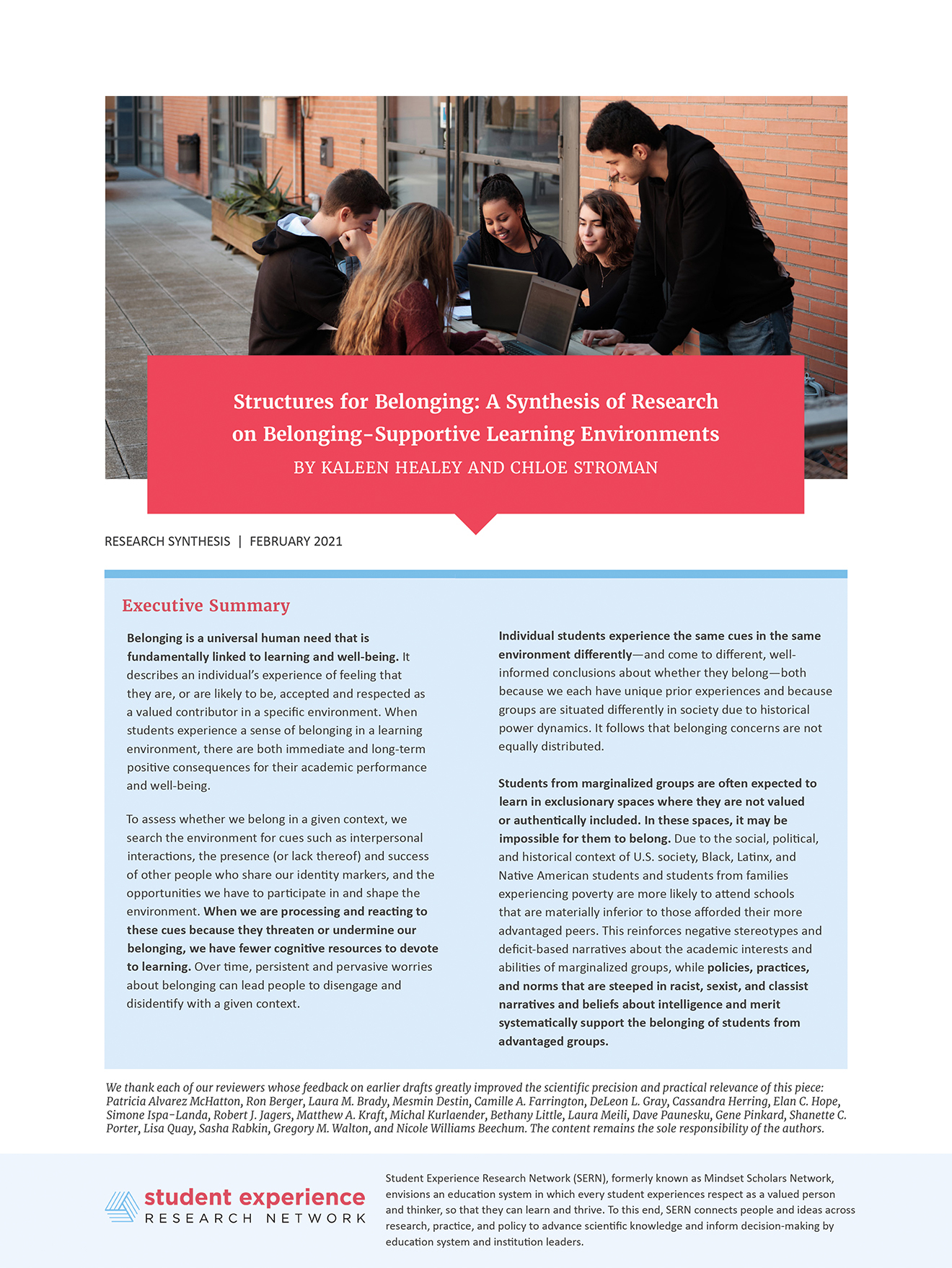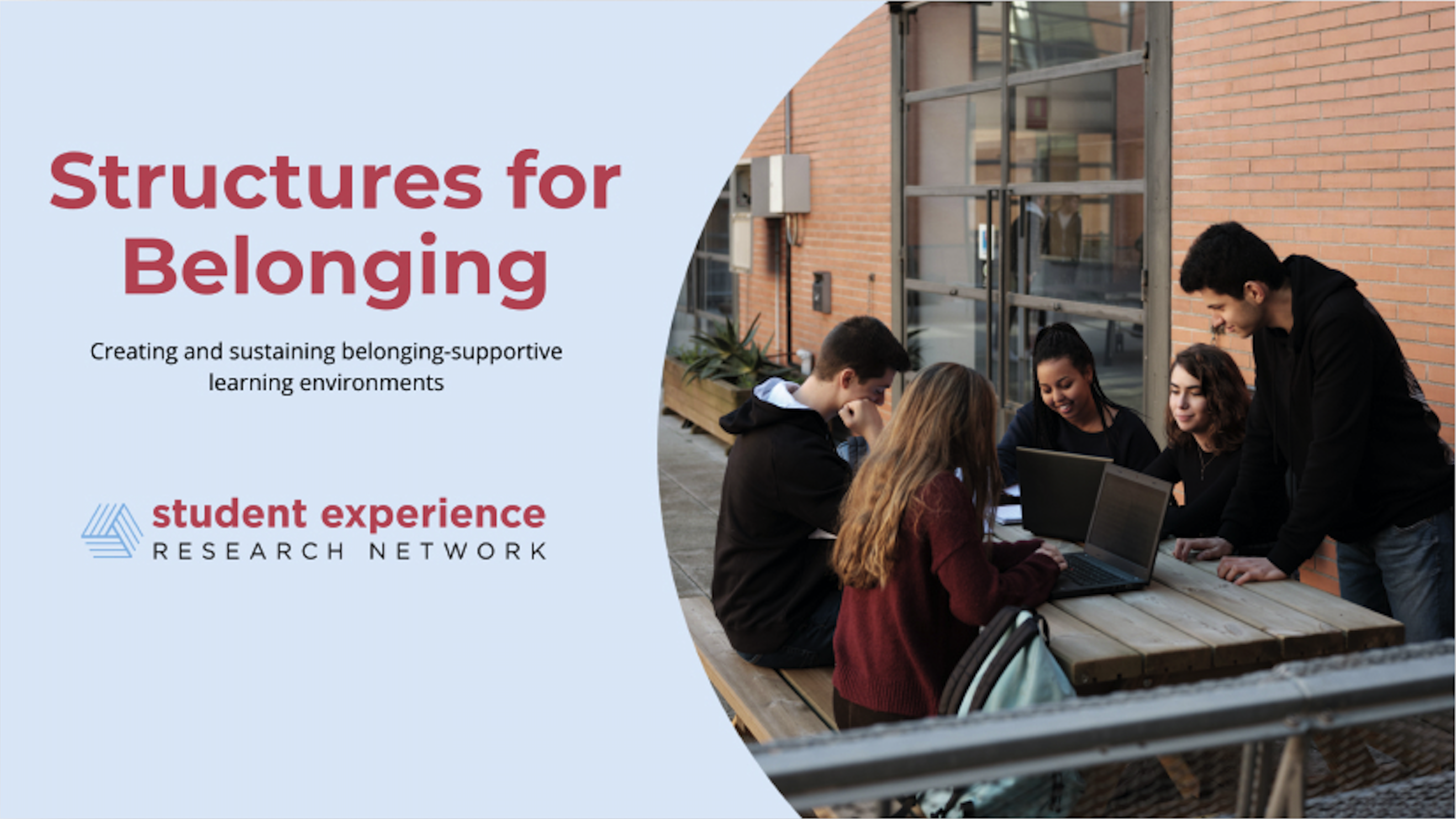Belonging is a vital ingredient for learning and well-being. In every learning environment, students pick up on cues and signals that they use to assess whether and to what extent they belong. When these messages support students’ belonging, they can bring their full selves to school and devote their full attention and energy to learning. When these messages render the environment physically or emotionally unsafe, or cause students to question their belonging, their cognitive resources are diverted away from learning and towards monitoring or responding to threats in the environment.
In many cases, experiences of belonging or lack thereof are related to broader, underlying systems in our society that position certain groups, behaviors, and ways of being as superior or as the default along the lines of race and ethnicity, gender and sexual identity, language, class, indigeneity, or ability.
Structures for Belonging: A Research Synthesis
What do we know about creating and sustaining environments that support belonging for each student? To answer this question, in 2021 Student Experience Research Network released Structures for Belonging, a research synthesis that illuminates structures – or practices, policies, and norms – related to belonging in four overlapping categories: access to learning environments; relationships with educators, peers, and families; instructional resources and pedagogy; and system-level policies and practices. The synthesis discusses both K-12 and postsecondary educational contexts, and includes research from diverse academic disciplines including social psychology, cultural psychology, sociology, adolescent development, neuroscience, economics, and education.
Read the full research synthesis
Read the executive summary
Read the key takeaways
Belonging Collective: Making Meaning of the Research Across Nine Education Organizations
As part of Student Experience Research Network’s 2021 Belonging Collective, leaders at Branch Alliance for Educator Diversity, Center for Educational Leadership, City Year, EL Education, Equal Opportunity Schools, Leading Educators, Teach for America, TNTP, and Zearn worked together to operationalize the synthesized research in Structures for Belonging.
These organizations, which span K-12 school and district support, educator preparation and professional learning, and curriculum, participated in a series of meetings to give and receive feedback on their internal research agendas and processes related to student belonging. They also contributed to the compilation and development of resources for applying research on belonging-supportive learning environments.
Insights and input from the Belonging Collective are reflected in the Structures for Belonging professional learning materials. These materials support up to three hours of professional learning related to belonging-supportive learning environments and are designed to be adaptable for a range of audiences in K-12 education, including teachers, school and district leaders, teacher educators, and intermediary organization staff.


